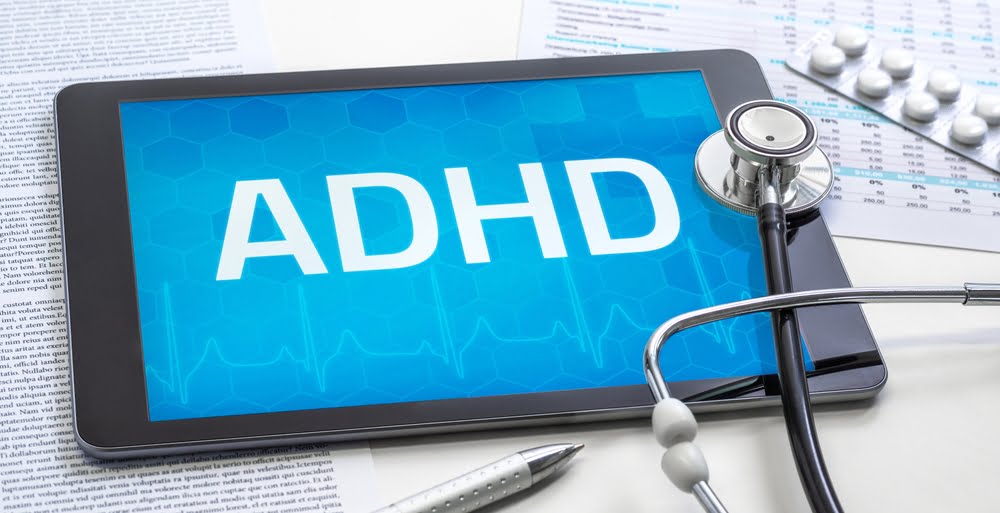Training to Assess Patients for ADHD
-
ByADHD Training Academy
A self-paced online learning course with classes and assessment practice, exam based, CPD qualifying course in assessing for ADHD in Adults and Children (UK)
Description
This Course Is Suitable for Medical Professionals
Please check the course qualifying list below for eligibility to take this course.

This course is for medical professionals assessing patients for ADHD in a clinical setting and explores how to successfully use assessment tools and interpret the data of screening and assessment, forming a diagnosis within the NICE guidance framework and the role of non-medical and medicines management in ADHD. Meeting the standards required in writing a diagnostic report and onward referrals and supporting the needs of patient’s post-assessment. There is a final exam, and this course contributes to your continuing professional development portfolio.
Who Is This Course For
- Clinicians
- Doctors
- General Practitioners
- Prescribing Pharmacists
- Band 7 Prescribing Nurses
- Brand 7 Nurses in Mental Health
- Band 7 Advanced Practice Nurses
- Band 6 (top) with experience, working towards Band 7 (Advanced Practice)
Features
- Course Management
- Communication and Collaboration
- User-Friendly Interface
- Large Video Library of Practise Assessments
Target Candidates
- General Practitioners
- Prescribing Pharmacists
- Band 7 Prescribing Nurses
- Band 7 Nurses in Mental Health
- Band 7 Advanced Practice Nurses
- Band 6 (top) with experience, working towards Band 7 (Advanced Practice)
Requirements
- Requires Internet Access
- Meet Eligibility
- Internet Connected Device (Desktop, Laptop, Chromebook, Tablet, Mobile)
Curriculum
- 8 Sections
- 86 Lessons
- Lifetime
Expand all sectionsCollapse all sections
- Module One - Anatomy Of The BrainIn this module, we look more closely at the anatomy of the brain and learn what is happening in the brain of a patient with ADHD. We will look at the natural development of the brain from birth to seven years and why the age of seven is such an important milestone in brain development. We explore the DSM-V, ICD-10 diagnostic criteria and NICE Guidance NG87. We review the standards we must meet to be an assessor to diagnose, treat and care for patients of all ages, with ADHD13
- 1.1Anatomy and aetiology of ADHD
- 1.2Exploring early brain development
- 1.3Early brain development in neurodiversity
- 1.4Module 1 mini quiz – Understanding cognitive development in children over the age of seven10 Minutes5 Questions
- 1.5Early brain development in neurodiversity – post mini exam
- 1.6The actions of neurons in the brain
- 1.7The vital balance of dopamine and regulation in the brain
- 1.8Dopamine regulation in ADHD vs non-ADHD individuals
- 1.9Implications of dopamine dysregulation in ADHD
- 1.10The DSM-V criteria for diagnosis in ADHD
- 1.11ICD-10 criteria for diagnosis in ADHD
- 1.12NICE guidance NG87
- 1.13Module 1 Final30 Minutes15 Questions
- Module Two - Lifelong Diagnosis In ADHDIn this module we explore the process of screening patients for ADHD both prior to referral and during the diagnostic process. We review the screening tools used once you have accepted the patient referral. We look at how the tools best align with the diagnostic criteria and when to choose the right tool and how to use it.12
- 2.1Working towards diagnosis
- 2.2The screening process
- 2.3The adult ASRS-v 1.1 Screener
- 2.4Conners Adult ADHD Rating Scales (CAARS)
- 2.5Wender Utah Rating Scale (WURS)
- 2.6Qb-Test
- 2.7SNAP-IV as a child screening tool
- 2.8Consolidate Your Learning
- 2.9The introduction of subtypes in ADHD
- 2.10Understanding diagnostic subtypes in ADHD
- 2.11Module 2 Quiz10 Minutes6 Questions
- 2.12Consolidate your learning – Module 2
- Module Three - Screening PatientsIn this module we look at the impact a lifelong diagnosis in ADHD can have on an individuals mental wellbeing. The impact on children across the ages and how symptoms may present differently in adolescents and adults.12
- 3.1Impact of ADHD
- 3.2The impact of ADHD across the ages
- 3.3Case studies – Paul
- 3.4Case studies – Scott
- 3.5Case studies – Meena
- 3.6Case studies – Adrienne
- 3.7Case studies – Summary
- 3.8The individualised symptoms of ADHD
- 3.9Module 3 mini quiz10 Minutes5 Questions
- 3.10Emotional and psychological impact
- 3.11Help for adults post-diagnosis
- 3.12Help for children post-diagnosis
- Module Four - Child ScreeningIn this module we look at a child case-study screening and the steps involved in assessing their developmental history and family health history. We look more closely at safeguarding and the complex relationships between children of ADHD parents and why this is an important factor in safeguarding.15
- 4.1Module 4 – Overview
- 4.2Child case-study: Peter Fleet
- 4.3Developmental History
- 4.4Risk assessment and mental state exam
- 4.5Safeguarding adults and children
- 4.6Informative studies on ADHD parenting
- 4.7The latest research in the multifaceted relationship between parental ADHD symptoms
- 4.8Improving outcomes for families with ADHD
- 4.9Comorbidity in parental ADHD
- 4.10Risk assessment in children with ADHD
- 4.11Peter Fleet – SNAP-IV assessment outcome
- 4.12Red flags in ADHD assessment – children
- 4.13Red flags in ADHD assessment – adults
- 4.14Key Points for practitioners
- 4.15Module 4 Quiz10 Minutes5 Questions
- Module Five - NICE GuidanceIn this module we explore NICE Guidance NG87 on the recognition, referral, diagnosis and treatment of ADHD. We look specifically at the tools used in the assessment process and choosing the right tools and screening tools for both adults and children. We review the typical journey for a patient with ADHD from referral to diagnosis.8
- 5.1Module 5 – Overview
- 5.2NICE Guidance on ADHD Assessment
- 5.3Choosing the right tools
- 5.4The typical journey to a diagnosis
- 5.5NICE Guidance summary on Cardiac Patient Care in ADHD
- 5.6Patients with a history or actively involved in substance misuse
- 5.7NICE Guidance on differential diagnosis
- 5.8Module 5 Quiz30 Minutes15 Questions
- Module Six Differential DiagnosisIn this module we explore less common presentations that may mimic ADHD. Understanding differential diagnosis is key to assessing ADHD and many differential diagnosis have patterns or presentations that will set them apart from ADHD.16
- 6.1Module 6 – Overview
- 6.2Comorbidity and Differential Diagnosis
- 6.3Sensory Processing Disorder (SPD)
- 6.4Pathological Demand Avoidance
- 6.5ADHD and comorbidity
- 6.6Module 6 Mini Quiz10 Minutes5 Questions
- 6.7Module 6 – Mini Quiz – Follow On
- 6.8Case Study – (A)
- 6.9Case Study – (B)
- 6.10Case Study – (C)
- 6.11Case Study – (D)
- 6.12Case Study – (A) – Review
- 6.13Case Study – (B) – Review
- 6.14Case Study – (C) – Review
- 6.15Case Study – (D) – Review
- 6.16Review of differential diagnosis – core features
- Module Seven - MedicationIn this module we learn about classes of medication, stimulants versus non-stimulants and the prescribing considerations assessors need to be aware of for special populations. Contraindications in prescribing and managing side effects. The monitoring and follow up needed to keep patients safe and how to successfully manage side effects. There are three patient case studies to consider.12
- 7.1Module 7 – Overview
- 7.2Classes of Medication
- 7.3Contraindications and prescribing
- 7.4Managing Side Effects in Medication
- 7.5Case Study Two – Adult with Substance Misuse History
- 7.6Case Study Three – 15 Year Old Male – Cardiac History
- 7.7Case Study – Key Take Aways
- 7.8Module 7 Quiz10 Minutes5 Questions
- 7.9Child medication study (a)
- 7.10Child Medication Study (b)
- 7.11Child Medication Study (c)
- 7.12Medications – Key Learning Points
- Module Eight - Clinical ReportIn this final module we look at the content of a good clinical report. Delivering a lifelong diagnosis and answering patient questions. We review the flow from referral to end report, in the diagnostic journey. We consider the waiting period, non-medical treatment options and the introduction of self-help strategies for newly diagnosed patients. A final exam revisits the course content, and a course certificate is generated on successful completion of the course.7
Price
£1,795.00
Requirements Expert
3 Past Students
Duration Of access Self-Paced Learning
86 Lessons
Certificates Yes
Target Candidates
- General Practitioners
- Prescribing Pharmacists
- Band 7 Prescribing Nurses
- Band 7 Nurses in Mental Health
- Band 7 Advanced Practice Nurses
- Band 6 (top) with experience, working towards Band 7 (Advanced Practice)




